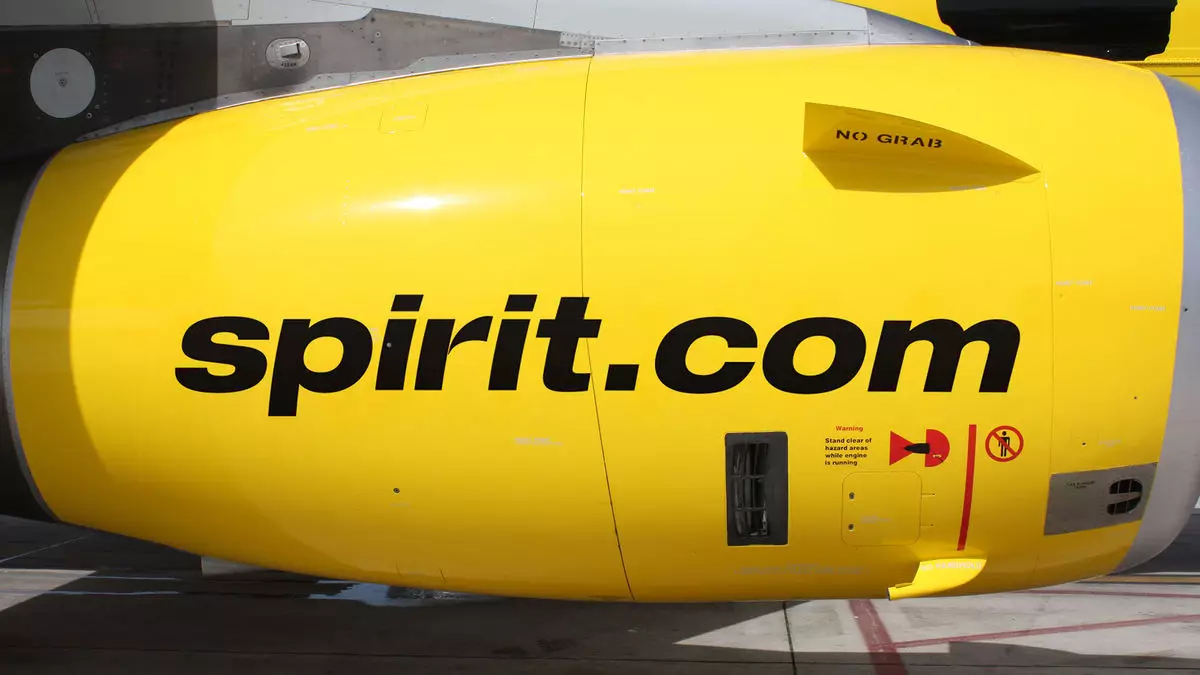In a significant yet anticipated move, Spirit Airlines has publicly announced its decision to initiate “prearranged” Chapter 11 bankruptcy proceedings, a strategy aimed at realigning the airline’s financial structure to better navigate ongoing market challenges. The U.S. Securities and Exchange Commission has been notified, signaling a commitment to restructuring that emphasizes proactive measures. This approach has been deemed necessary in light of the airline’s mounting debt and operational hurdles.
Spirit’s management characterizes this Chapter 11 filing as a “proactive step” and, more importantly, as a mechanism to bolster their long-term viability. They have secured a restructuring support agreement backed by a supermajority of bondholders. Central to this agreement is an anticipated debt reduction that aims to ultimately empower Spirit Airlines with enhanced financial flexibility. By focusing on resolving over $795 million in funded debt, the airline hopes to pivot towards a trajectory that emphasizes sustainable growth and improved customer experiences.
Financial Reinforcements and Operational Adjustments
As part of this restructuring initiative, Spirit will benefit from substantial financial backing—a $350 million equity investment from its existing bondholders, alongside an additional $300 million in debtor-in-possession financing. These funds are crucial as Spirit Airlines seeks to navigate through the Chapter 11 process, with plans to leverage its cash reserves and operational cash flow to maintain essential services.
Despite these efforts, the situation is not without its challenges. A recent report indicated a decline in third-quarter operating revenues by approximately $61 million year-over-year. This downturn arises from a confluence of factors, including diminished average yields, the elimination of change and cancellation fees, and rising operational expenses. Such financial stressors underscore the pressing need for the restructuring efforts currently being pursued by Spirit.
Impact on Stakeholders
In the wake of the bankruptcy filing, Spirit Airlines has reassured its customers regarding the status of their travel services. The airline emphasized that existing tickets, loyalty points, and special program benefits will remain valid, thereby alleviating immediate concerns for travelers. Such communications are pivotal in maintaining customer trust during turbulent times, and they signal that despite the financial restructuring, Spirit intends to keep operations intact and customer services uninterrupted.
However, there are larger implications for stakeholders, particularly following a series of losses and a failed merger with JetBlue that the U.S. Department of Justice blocked earlier this year. This merger, valued at $3.8 billion, was seen as a potential lifeline for Spirit, but the unsuccessful bid has left the airline in a precarious position, necessitating urgent financial and operational recalibrations.
As Spirit Airlines embarks on this journey through Chapter 11, the road ahead will undoubtedly be challenging. Yet, the strategic nature of this decision highlights an awareness of the industry’s competitive landscape and acknowledges the pressing need for a robust restructuring strategy. With financial backing in place and an eye on long-term sustainability, Spirit Airlines is poised to reinvent itself, aiming not only to weather the current storm but also to emerge stronger, with a renewed focus on delivering value to its customers. The next few months will be critical as stakeholders watch closely to see how effectively the airline can translate this plan into actionable results.


Leave a Reply